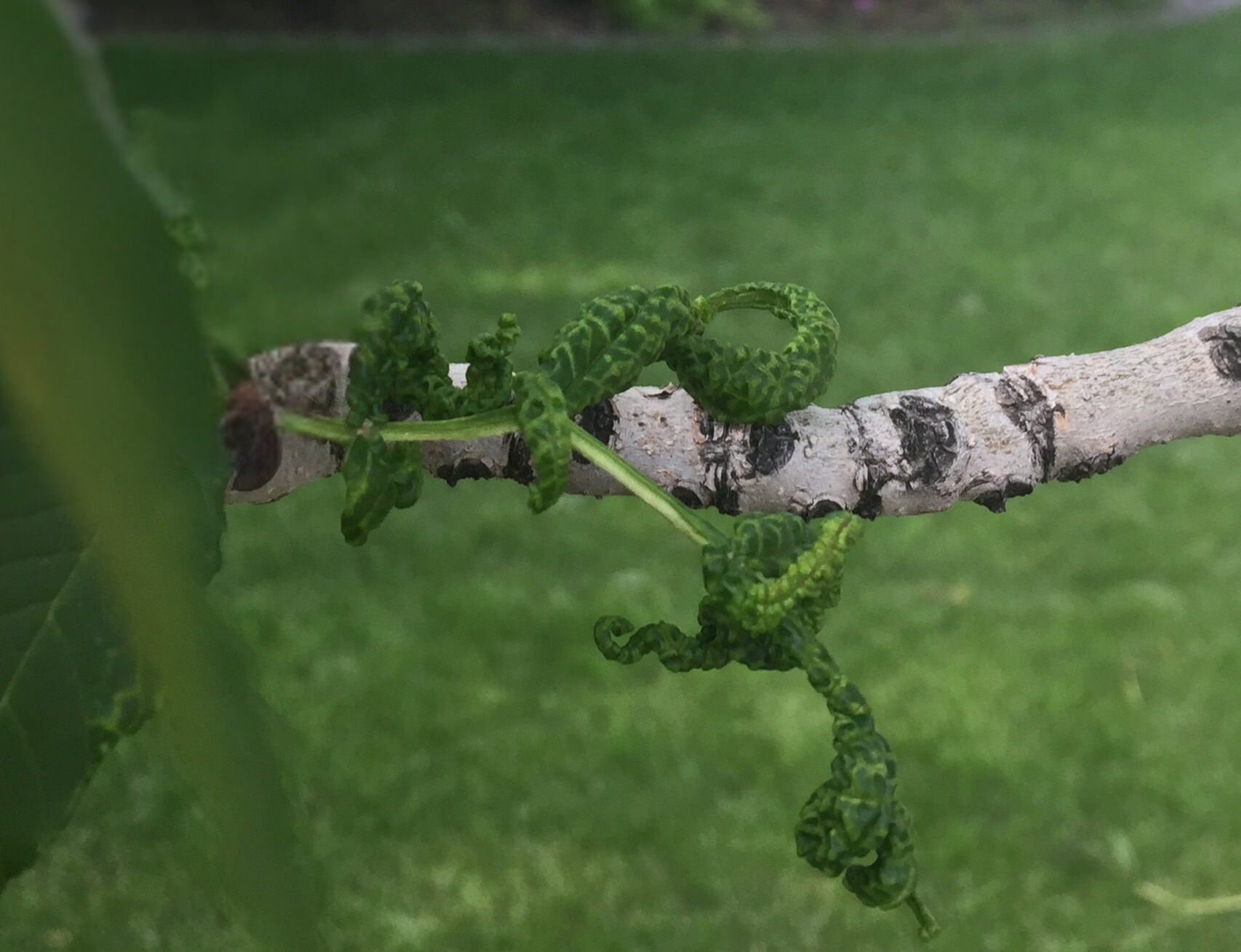Cottony ash psyllid
Cottony ash psyllid is an invasive pest which affects black and Manchurian ash trees. It does not impact green ash trees.
Symptoms
The immature (nymph) stage of the insect feeds on ash leaves by piercing the tissue and sucking out plant juices. Cottony ash psyllid injects a toxin into the leaf tissue while feeding. The toxin causes the leaf to curl and deform, giving it a ‘cauliflower’ appearance. Cottony ash psyllid also secretes a white cottony substance inside the curled leaves.
Cottony ash psyllid will cause ash trees to drop their leaves earlier in the summer. Overtime the loss of leaves leads to premature tree death. It also makes ash trees more vulnerable to other tree pests and diseases.
What you can do to protect your trees
Cottony ash psyllid is hard to control as the nymphs are protected inside the curled leaves. Stressed trees are more likely to be infested, so keep trees healthy and well-watered.
Insecticidal soap may be used to help control cottony ash psyllid, but proper timing is essential. Trees must be treated in early summer before the psyllids are protected in the curled leaves.


